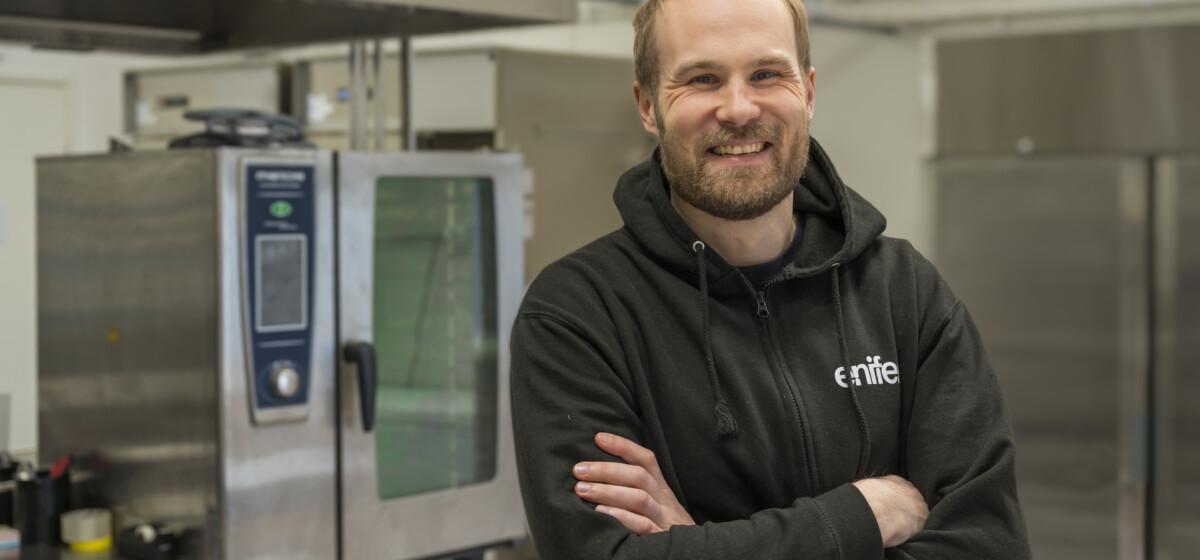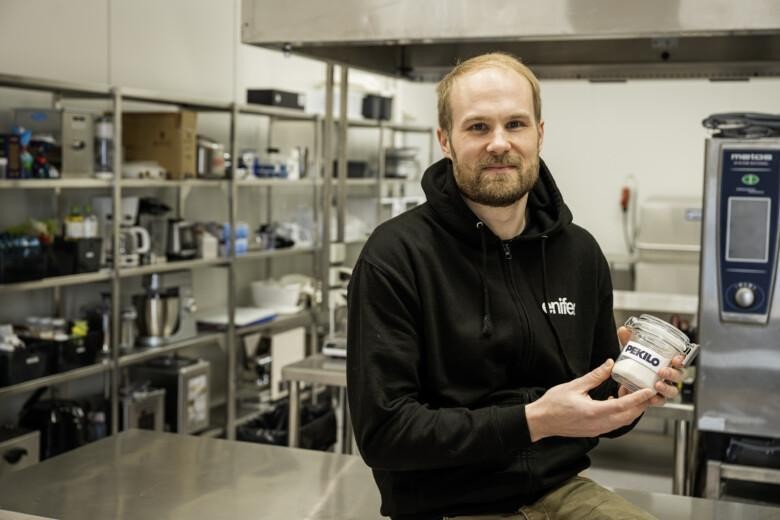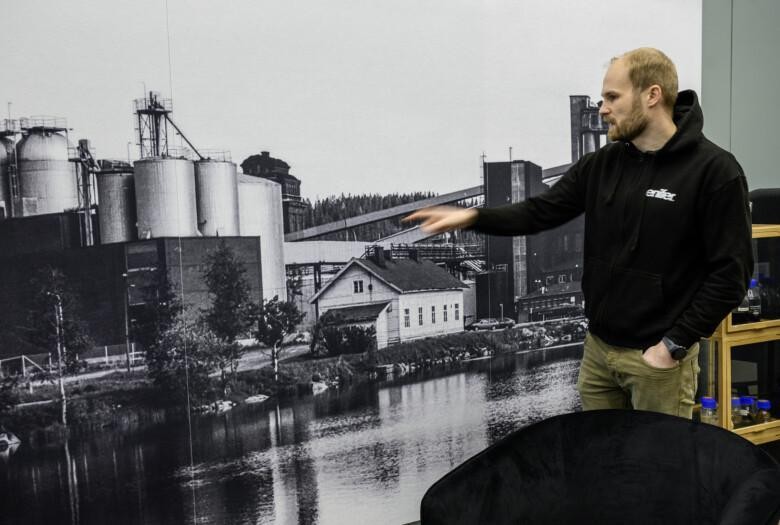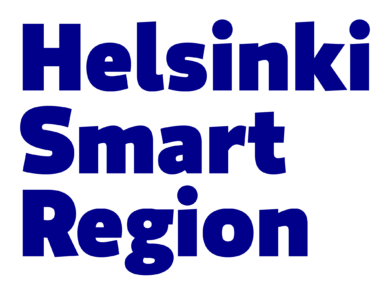Cases

Industrial modernisation
Fungi-based mycoprotein from Finland to solve the world’s soaring protein need
Published:
Enifer’s founder and CEO Simo Ellilä has had a busy spring, and his calendar is not about to clear any time soon. So, this interview is being conducted in the evening while he prepares dinner for his family. This time it’s not the company’s own product in preparation, but fish.
However, the fungi-based PEKILO® mycoprotein is tasted daily at the company’s research and development facilities in Espoo. The company employs three food scientists who test how the mycoprotein, produced from food industry side streams, can be used as food.

The results have been promising. PEKILO® can be used in cooking the same way as pea or soy proteins. It has the advantage that people who get stomach aches from legumes are usually able to use fungi-based proteins, as the fibres are similar to oats.
Fungi-based protein has also been found to work well in baking. It adds protein to products without any unwanted colour or flavour. Half of PEKILO® powder is protein. The rest is good quality fibres, fats and minerals.
New types of plant products instead of meat substitutes
Enifer was launched as a spin-off from VTT in 2020, when a team of five researchers succeeded in their first round of funding and were able to continue refining a fungi-based mycoprotein product originally developed in the 1970s. It was once produced from sulphite sludge from the forest industry.
Originally, the production of mycoprotein began in the Finnish forest industry in the 1970s. Back then, the paper industry engineers were trying to come up with a solution to avoid the pulp mill sidestreams contaminating the local waterways. As they discovered that left untouched, the sidestream mass would start growing fungus, they created the original mycoprotein product.
The process is still the same as it was more than 50 years ago, when mycoprotein was mainly used to make animal feed. Production ceased when the sulphite-based pulp mills were closed down. At Enifer’s premises, a wall-sized black and white photograph of a pulp mill in Mänttä is a reminder of the roots of this invention.
Fungi-based mycoprotein began to attract renewed interest in the 2020s as part of a vegetarian diet. VTT and Enifer also brought Finnish manufacturer of dairy products Valio into the development process.

The fungi-based mycoprotein can be produced from the side streams of agriculture and dairy processing, in addition to by-products from the forestry industry. The major advantages of PEKILO® are its low carbon footprint and the low consumption of clean water required in the production.
According to Ellilä, Enifer offers the most competitive protein production process in the world.
He hopes that the food industry will be brave and develop new types of plant products from fungi-based mycoprotein, rather than just trying to make meat substitutes.
– People have been eating good vegetarian food for centuries. If we try to make meat out of mycoprotein, consumers are more likely to be disappointed because it is not the same thing.
First-of-its-kind mycoprotein factory built in Kirkkonummi
The busy spring is explained by the recently secured funding that enables the company to start constructing a first-of-its-kind food-grade mycoprotein factory in Kirkkonummi, Uusimaa. The factory will be the world’s first commercial plant to produce a mycoprotein ingredient from food industry sidestream raw materials. The current facilities in Espoo are not sufficient, although they include a test kitchen and a laboratory in addition to the production space.
The test kitchen is essential because it is important for the company to understand which products PEKILO® is suitable for. The company can then instruct its future customers on the properties of the fungi-based protein.
– We need a lot of information, because we need to be able to tell the food authorities in which products will PEKILO® be used.
For its new protein factory, the company has received a €12 million investment grant from Business Finland and the European Union. The factory will produce up to 3,000 tons of PEKILO® a year, which is enough to cover the annual protein needs of approximately 40,000 people.

Ellillä says that the new factory will increase production to such an extent that the company will be able to expand its operations also outside Finland. In fact, the international market was already in mind when the company was founded. So far, the company has spread its tentacles to the rest of Europe, but it also has a partner in South America, where a pilot plant is being built.
– It was an interesting situation, because we were contacted from there and they wanted to start working with us, says Ellilä.
Enifer is seeking novel food authorisation for its mycoprotein powder not only in the EU but also in other markets.
Expanding as much as possible is good not only for the company’s business, but also for its impact.
Ellilä believes that expanding as much as possible is good not only for the company’s business, but also for its impact. Fungi-based protein production means a more sustainable food economy.
Despite the internationalisation plans, research and product development will continue in the Helsinki-Uusimaa Region, as well as the production. In here, the company already has good partnerships, such as the one with Valio.
– Valio has been a major contributor to the development of the food applications of mycoprotein.
Investors want to know more than just the story
Ellilä says that Enifer would not have made it this far without investors who believe in the company. Companies such as Nordic Foodtech and Voima Ventures have been involved almost from the start.
The business has grown by leaps and bounds, and sometimes more slowly.
The investing boom was in 2019-2020, when investors felt that a good story and an effective PowerPoint presentation were enough. Now it’s much tougher to see a path to a profitable business, Ellilä explains.
– I have sometimes berated myself for being a traditional Finnish engineer and not the best at selling and marketing. However, in the current market situation, it is good that everything is not based solely on sales talk, says Ellilä.










 Return to listing
Return to listing